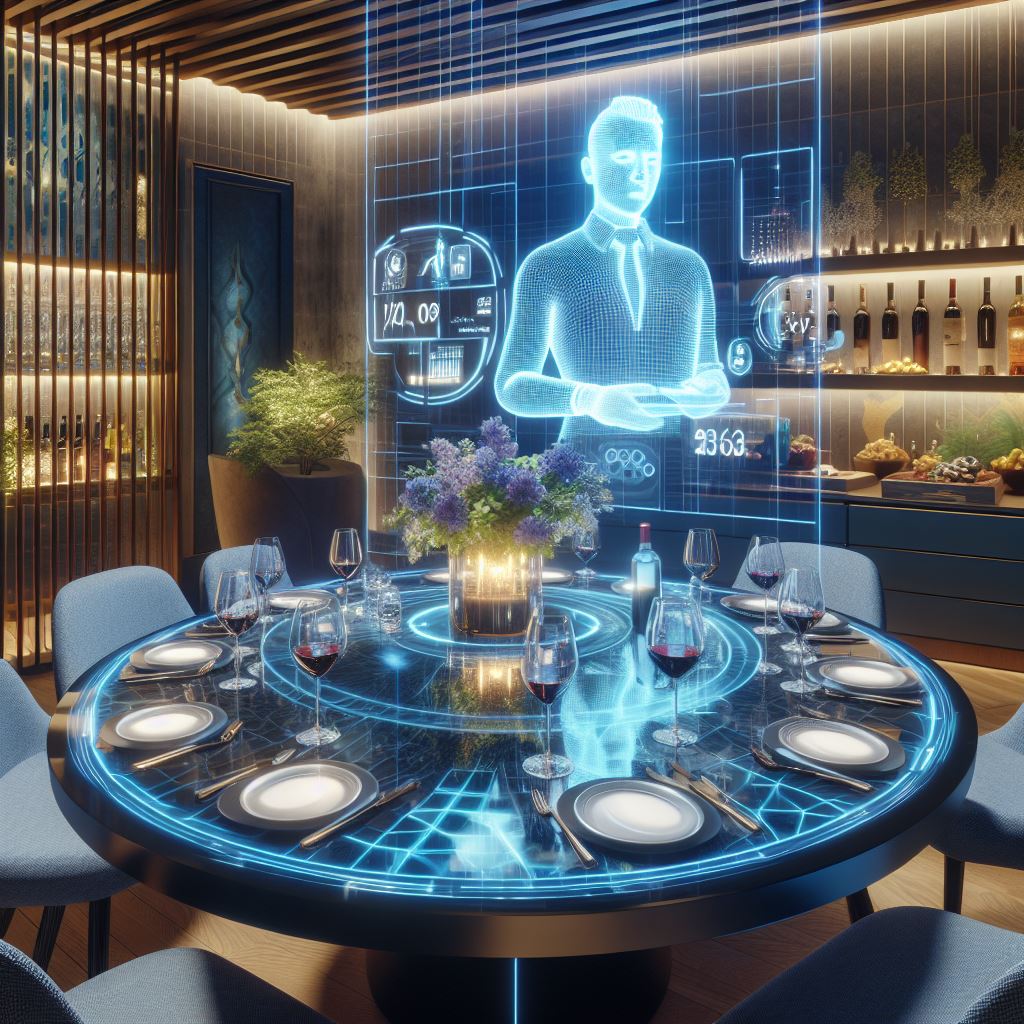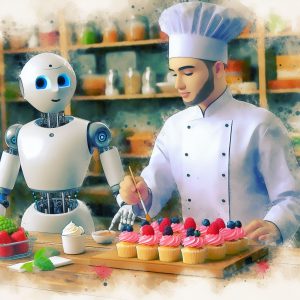The world of wine is vast and complex, with countless varieties, regions, and vintages to explore. For those who want to navigate this world with confidence, the role of the sommelier is essential. Sommeliers are experts in wine who can help you find the perfect bottle for any occasion.
Traditionally, sommeliers have relied on their knowledge, experience, and intuition to make recommendations. However, artificial intelligence (AI) is rapidly changing the way that sommeliers work. AI-powered wine recommendation systems can analyze data on millions of wines to identify patterns and trends. This information can then be used to generate personalized recommendations for individual consumers.
The Impact of AI on the Sommelier Profession
The rise of AI is having a significant impact on the sommelier profession. On the one hand, AI is making it easier for sommeliers to learn about wine and make informed recommendations. On the other hand, AI is also automating some of the tasks that sommeliers traditionally performed, such as recommending wines and managing wine lists.
Benefits of AI for Sommeliers
There are a number of ways in which AI can benefit sommeliers:
- Increased knowledge: AI-powered wine recommendation systems can provide sommeliers with access to a vast amount of data on wines from all over the world. This information can help sommeliers learn about new wines and vintages, and it can also help them to identify wines that are similar to those that their customers enjoy.
- Improved recommendations: AI can help sommeliers to make more accurate and personalized recommendations for their customers. By analyzing data on a customer’s past purchases, preferences, and demographics, AI can generate a list of wines that are likely to appeal to that customer.
- Automated tasks: AI can automate some of the tasks that sommeliers traditionally performed, such as recommending wines and managing wine lists. This can free up sommeliers’ time so that they can focus on providing a better service to their customers.
Challenges of AI for Sommeliers
While AI has the potential to benefit sommeliers, there are also a number of challenges that need to be addressed:
- Loss of jobs: AI could potentially lead to the loss of jobs for some sommeliers. As AI-powered wine recommendation systems become more sophisticated, they may be able to replace sommeliers in some settings.
- Increased reliance on technology: AI-powered wine recommendation systems rely on data to make recommendations. This means that sommeliers who use these systems may become overly reliant on technology and may lose their ability to make recommendations based on their own knowledge and experience.
- Bias: AI-powered wine recommendation systems can be biased against certain types of wines or winemakers. This can lead to sommeliers making recommendations that are not in the best interests of their customers.
The Future of Wine Recommendations
It is clear that AI is having a significant impact on the sommelier profession. As AI continues to develop, it is likely that we will see even more changes in the way that sommeliers work. However, it is important to remember that AI is a tool, not a replacement for human expertise. The best sommeliers will be those who are able to use AI to enhance their knowledge and skills, and who are able to provide their customers with a personalized and memorable experience.
The rise of AI is changing the way that sommeliers work. AI-powered wine recommendation systems can provide sommeliers with access to a vast amount of data on wines, which can help them to make more accurate and personalized recommendations for their customers. However, there are also a number of challenges that need to be addressed, such as the loss of jobs, the increased reliance on technology, and the potential for bias. The best sommeliers will be those who are able to use AI to enhance their knowledge and skills, and who are able to provide their customers with a personalized and memorable experience.

Dangers for Sommeliers in the Food Industry
The food industry is constantly evolving, and with the advent of artificial intelligence (AI), many jobs are at risk of being replaced by machines. Sommeliers are no exception.
AI-powered systems are already being used to analyze wine data, recommend wines to customers, and even create wine lists. This technology is only going to become more sophisticated in the years to come, and it is likely that sommeliers will face increasing competition from AI in the job market.
Here are some of the specific dangers that sommeliers face:
- Loss of jobs: As AI-powered systems become more capable, they are likely to take over many of the tasks that are currently performed by sommeliers. This could lead to a significant loss of jobs in the sommelier profession.
- Lower wages: As AI-powered systems become more widely adopted, employers may be less willing to pay high wages to sommeliers. This could lead to a decline in the average salary for sommeliers.
- Less prestige: As AI-powered systems become more sophisticated, they may come to be seen as more knowledgeable and trustworthy than human sommeliers. This could damage the reputation of the sommelier profession and make it less attractive to potential candidates.
Possibilities of Sommelier Job Being Replaced by AI
It is important to note that AI is not a perfect technology. AI-powered systems can make mistakes, and they are not always able to understand the nuances of wine as well as human sommeliers. This means that there will always be a role for human sommeliers in the food industry.
However, it is also likely that AI will play an increasingly important role in the sommelier profession. AI-powered systems can be used to augment the skills of sommeliers and help them to provide better service to customers.
Here are some of the ways that AI could be used to help sommeliers in their jobs:
- Provide wine recommendations: AI-powered systems can be used to analyze wine data and recommend wines to customers based on their preferences. This can help sommeliers to save time and provide customers with more personalized recommendations.
- Create wine lists: AI-powered systems can be used to create wine lists that are optimized for a particular restaurant or bar. This can help sommeliers to ensure that their wine lists are up-to-date and that they offer a variety of wines that will appeal to customers.
- Educate customers about wine: AI-powered systems can be used to educate customers about wine. This can be done through interactive wine tasting experiences, online wine courses, or even chatbots that can answer customers’ questions about wine.
How to Adapt to the Changing Landscape
The changing landscape of the sommelier profession can be daunting, but there are a number of things that sommeliers can do to adapt and thrive in the years to come.
Here are a few tips:
- Embrace AI: AI is not a threat to the sommelier profession. It is a tool that can be used to augment the skills of sommeliers and help them to provide better service to customers. Sommeliers who are willing to embrace AI will be more likely to succeed in the changing landscape of the food industry.
- Develop new skills: Sommeliers need to develop new skills that will allow them to stay ahead of the curve. This could include learning about new wine regions, grape varieties, and winemaking techniques. Sommeliers should also focus on developing their communication and customer service skills.
- Network with other sommeliers: Networking with other sommeliers is a great way to stay up-to-date on the latest trends in the industry. Sommeliers should attend industry events, join sommelier organizations, and connect with other sommeliers on social media.
- Be flexible: The food industry is constantly changing, and sommeliers need to be flexible and adaptable in order to succeed. Sommeliers should be willing to try new things and be open to new opportunities.
By following these tips, sommeliers can adapt to the changing landscape of the food industry and continue to thrive in the years to come.



